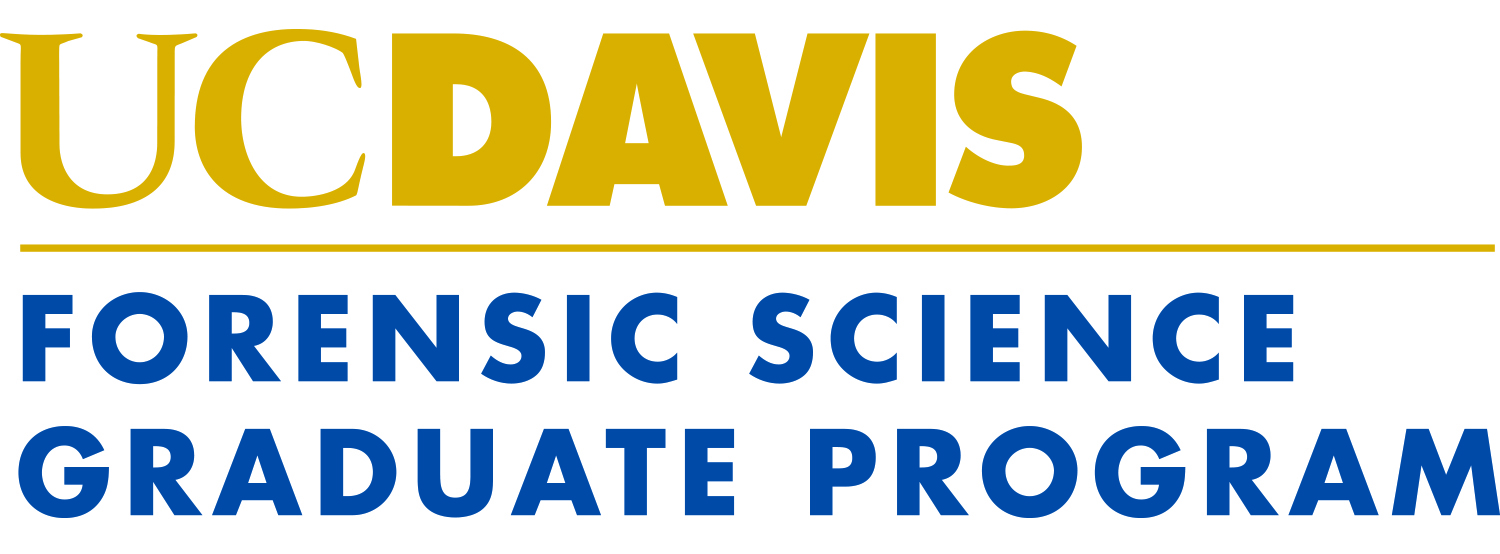We’re as Passionate About Your Thesis as You Are
The research interests and expertise of our Forensic Science Graduate Group span multiple disciplines, which makes it easy to connect with an engaged advisor to guide your thesis.
Graduate Group Members and Research Interests

Ralph C. Aldredge
Dr. Aldredge is a professor in the department of Mechanical & Aerospace Engineering. He is also involved in several leadership roles on campus, including his service as the Executive Associate Dean for Undergraduate Studies. His research centers on combustion, fluid dynamics, and bio-transport, with a focus on bio-fluid dynamics (vascular blood flow). He has developed software and even an iOS app (the Level-Set app) for simulation and analysis of flame propagation.

Dr. James Angelastro
Dr. Angelastro is an associate professor in the department of Molecular Biosciences. His research centers on neurobiology, with an emphasis in neural stem cells and neural tumors. His other research interests include cell biology, signal transduction, neurochemistry, gene expression, and apoptosis.
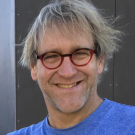
Dr. Matthew Augustine
Dr. Augustine is a professor in the department of Chemistry. His research centers on the application of magnetic and optical resonance to real-world problems. He is passionate about the study of the origin of the Earth’s magnetic field and macromolecular dynamics. Dr. Augustine uses this passion to develop screening devices, including a wine spoilage detector, and a liquids container screening device for airports.
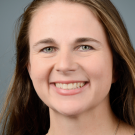
Dr. Rebecca Bellone
Dr. Bellone is a professor in the department of Population Health and Reproduction. Her research centers on veterinary genetics, specifically investigating traits in horses that are economically and medically important and are useful models for other species. Her research focuses on the genetic link between pigmentation and ocular disorders in horses. Dr. Bellone’s research aims to assist animal breeders and clinicians alike to identify horses at risk for ocular disorders.

Dr. Christyann Darwent
Dr. Darwent is a professor in the department of Anthropology. Dr. Darwent manages the
Zooarchaeology lab and Comparative Skeletal Collection. Her research centers on animal skeletal remains at archaeological sites and how these remains can inform us on subsistence of previous humans, especially those in arid, arctic, and coastal
environments.

Dr. Cristina Davis
Dr. Davis is a professor in the department of Mechanical and Aerospace Engineering. She is also involved as the associate vice chancellor of Interdisciplinary Research and Strategic Initiatives. Her research centers on wearable sensors, mechanical design, chemistry, instrumentation, and data analytics. Dr. Davis creates advanced chemical sensor systems that enable trace chemical detection in difficult environments.
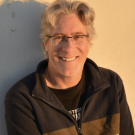
Dr. Jelmer Eerkens
Dr. Eerkens is a professor in the department of Anthropology. Dr. Eerkens’ sample-processing lab collaborates with other facilities on campus like the Stable Isotope Facility and the Proteomics Core. His research applies evolutionary models to understand changes in the archaeological record. He has recently published with two students from our program. He worked with former forensic science student Annie Sarancha on her publication, “The effects of burning on isotope ratio values in modern bone: importance of experimental design for forensic applications.” He also worked with Kyle Burk on his publication, “Proteomic Analysis of Dental Calculus as Insight into Mission-Period Diets in California.”

Dr. Carrie Finno
Dr. Finno is a professor in the department of Population Health & Reproduction. Her research centers on the molecular mechanisms of genetic diseases in horses and other
companion animals. Her research focuses on the role of Vitamin E in
neurodegeneration using a well-established mouse model.
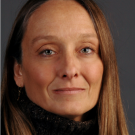
Dr. Cecilia Giulivi
Dr. Giulivi is a professor in the department of Molecular Biosciences. Her research centers on both in vitro and in vivo models of oxygen and nitrogen free radical biochemistry. Her research also focuses on mechanisms of mitochondrial dysfunction in neurological and metabolic diseases including autism, type-2 diabetes, Huntington’s disease, fragile-X and more.

Dr. Ashley Hall
Dr. Hall is the Director of the Forensic Science Graduate Program. She earned her MS in
Forensic Biochemistry and a Ph.D. in Biomolecular Science, both from the University of Central Florida. After graduate school, she worked in the defense industry before taking faculty posts in forensic science undergraduate and graduate programs at two Big 10, Tier 1 research universities - the University of Nebraska-Lincoln and the University of Illinois Chicago. Dr. Hall teaches the DNA courses in the program and has an active research lab that focuses on the use of touch and trace-level DNA to inform activity-level propositions, and the development of a DNA profile database, FauxDIS, for use in educational and research endeavors.
Recent Publications:
2023 Enhancing Research and Collaboration in Forensic Science: A Primer on Human
Subjects’ Research Protection. Michael Marciano, Ashley Hall, Ashraf Mozayani, Tracey
Cromp, Henry Maynard. Forensic Science International: Synergy, October (7) 100443
2023 Quantifying DNA Loss in Laboratory-Created Latent Prints Due to Fingerprint
Processing. Madison Carlin, Ryan Nickel, Krisha Halstead, Joy Viray, Ashley Hall, Allison
Ehrlich. Forensic Science International. March; 344 (111595)
2021 FauxDIS: an Online Interactive DNA Profile Database. Ashley Hall, Jonathan Bisson.Journal of Forensic Science Education. December; 3 (2)
2020 FauxDIS: A Searchable Forensic DNA Database to Support Experiential Learning.
Jacqueline Baranski, Karen Davalos-Romero, Melanie Burke, Nichole Leacock, Ashley Foster,Ashley Hall. Journal of Forensic Science Education. June; 1 (2)
2020 Touch DNA in Forensic Science; Development of a Mock Fingerprint for use as a
Positive Control. Jessica Tang, Jennifer Waranauskas, Ray Wickenheiser, Ashley Hall. FSI:Synergy. November; 2; 1 - 16
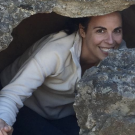
Dr. Brenna Henn
Dr. Henn is an associate professor in the department of anthropology. Her research combines population genetics and quantitative genetic theory to model human evolution processes. This work uses extensive genomic and phenotypic data from Sub-Saharan African populations. Her research also focuses on understanding genetic diversity of under-represented populations and reconstructing the complex demographic history of African populations.

Dr. You-Lo Hsieh
Dr. Hsieh is a professor in the department of Biological and Agricultural Engineering. Her research centers on the integration of polymer chemistry and material engineering to create function applications of nanocelluloses, biopolymers, and nanofibers. Her research focuses on the creation of 1D and 2D functional materials, hierarchical and hybrid nanofibers, and micro-/meso-porous structures.
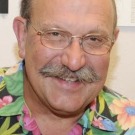
Dr. Robert Kimsey
Dr. Kimsey is an Emeritus Continuing Lecturer from the department of Entomology & Nematology. His most recent research focuses on Passive Evapotranspiration as a mediator of decomposition and arthropod development, blow fly orientation behavior, and other aspects of Forensic Entomology. Previously, Dr. Kimsey has worked in public health entomology, zoonotic disease, and arthropods of medical importance, particularly focused on blood feeding behavior and the biology and ecology of tick-borne pathogens.
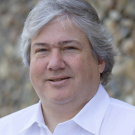
Dr. Donald Land
Dr. Land is a professor in the department of Chemistry. His research focuses on using
chromatography and mass spectrometry of medicinal plant secondary metabolites and
contaminants, often in combination with genetic manipulation and agricultural method
variation in an effort to understand plants’ defense response, plant chemical signaling,
and metabolite maximization or minimization.

Dr. Pamela Lein
Dr. Lein is a professor in the department of Molecular Biosciences. She also serves as
the department chair of Molecular Biosciences. Her research focuses on the mechanisms of neurotoxicology at the cellular and molecular levels as well as gene and environment interactions in neurodevelopmental disorders and neurodegenerative diseases.
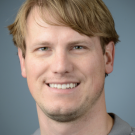
Dr. Benjamin Moeller
Dr. Moeller is an associate professor in the department of Molecular Biosciences. He is
also the head analytical chemist of equine chemistry at the California Animal Health & Food Safety Maddy Lab at Davis. His research focuses on equine antidoping, drug metabolism, pharmacokinetics, and biomarkers. He commonly uses mass spectrometry for his research.
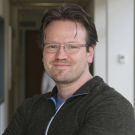
Dr. Sascha Nicklisch
Dr. Sascha Nicklisch is an Assistant Professor in the Department of Environmental Toxicology. His research focuses on understanding the molecular mechanisms underlying the uptake and distribution of drugs and environmental chemicals in humans and other organisms. Specifically, his lab investigates how these substances interact with protective drug transporters, such as P-glycoprotein, MRP1, and BCRP, to determine their levels in various foods and organisms. This work has pioneered the field of toxicokinetic interactions of environmental chemicals with drug transporters, providing insights into chemical bioaccumulation.
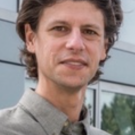
Dr. Sean Peisert
Dr. Peisert is an adjunct professor in the department of computer science. He is also a senior scientist at Lawrence Berkely National Laboratory and leads research and development for computer security. Dr. Piesert also serves as the director and PI of Trusted CI, the NSF Cybersecurity Center of Excellence.

Dr. Bahram Ravani
Dr. Ravani is a distinguished professor in the department of mechanical and aerospace engineering. His research interests include kinematics and dynamics, forensic evaluation of accidents and trauma, collision mechanics and biomechanics, and performance evaluation and design of crash protection systems.
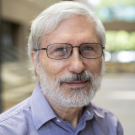
Dr. Robert Rice
Dr. Rice is a professor in the Department of Environmental Toxicology. His lab specializes in studying action of toxic and physiological agents on keratinocyte growth and differentiation, biochemistry and expression of specific markers in epidermal cells and appendages and metabolic activation of toxic chemicals in keratinocytes. Current research focuses on interactions of air pollution chemicals with cellular proteins and use of human and fish epidermal cells to study actions of toxic chemicals. The lab has a special interest in proteomics, especially protein profiling. Publication list: https://pubmed.ncbi.nlm.nih.gov/?term=rice+rh&sort=date&size=100
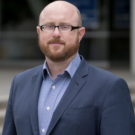
Dr. William Ristenpart
Dr. Ristenpart is a professor in the department of chemical engineering. His research focuses on complex transport phenomena, emphasizing the use of advanced experimental techniques to extract quantitative measurements from complicated phenomena.
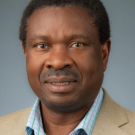
Dr. Wilson Rumbeiha
Dr. Rumbeiha is a professor of One Environmental Health Toxicology in the School of Veterinary Medicine. His current research focuses on biomarkers of low level microcystin exposure, hydrogen sulfide-induced toxicity, and translational veterinary clinical and diagnostic toxicology.

Dr. Ben Sacks
Dr. Sacks is an adjunct professor at UC Davis and is director of the mammalian ecology and conservation units. His research uses genetic and genomic tools, combined with field methodologies, to investigate problems in ecology, evolution, and conservation of mammals. Dr. Sacks also uses these methods towards conservation and wildlife management.

Dr. Bart Weimer
Dr. Weimer is a professor and department chair of the population health and reproduction department at the UC Davis school of veterinary medicine. Dr. Weimer’s research focuses on systems biology of bacterial pathogens and host/microbe interactions. His lab is focused on initial steps of host association and genomic requirements which impact chronic conditions like chronic inflammation.
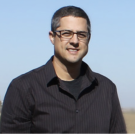
Dr. Sanjai Parikh
Dr. Parikh is an associate professor in the department of Land, Air, and Water Resources. His research focuses on biogeochemical processes that influence soil and water resources which have an impact on environmental remediation, food safety and security, and soil health.
